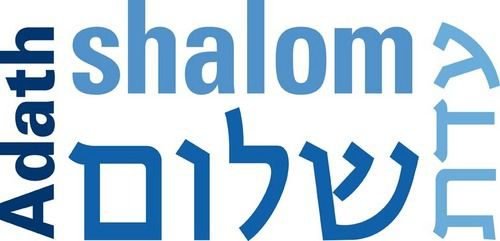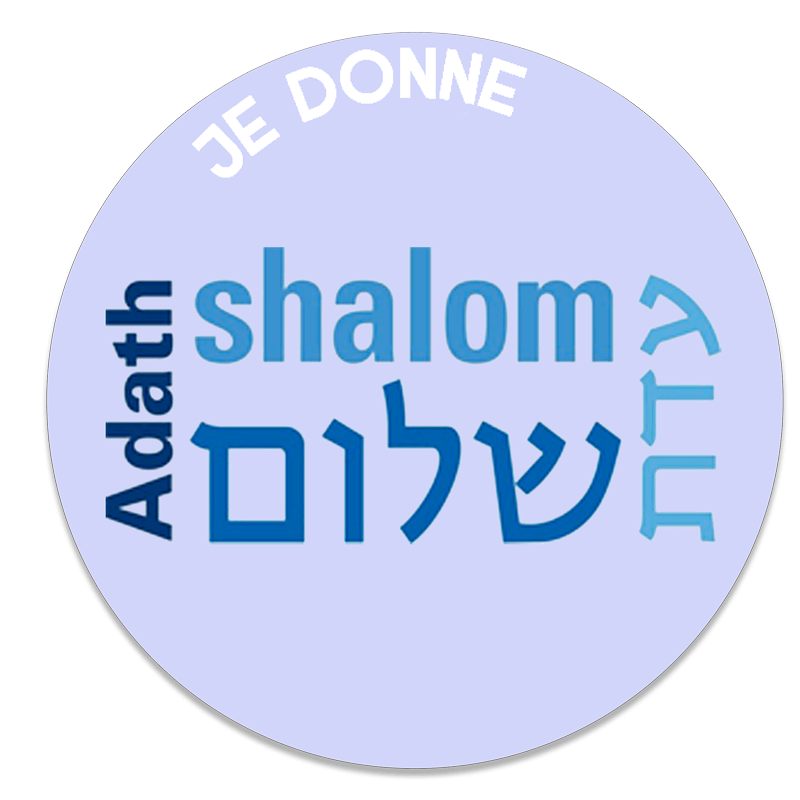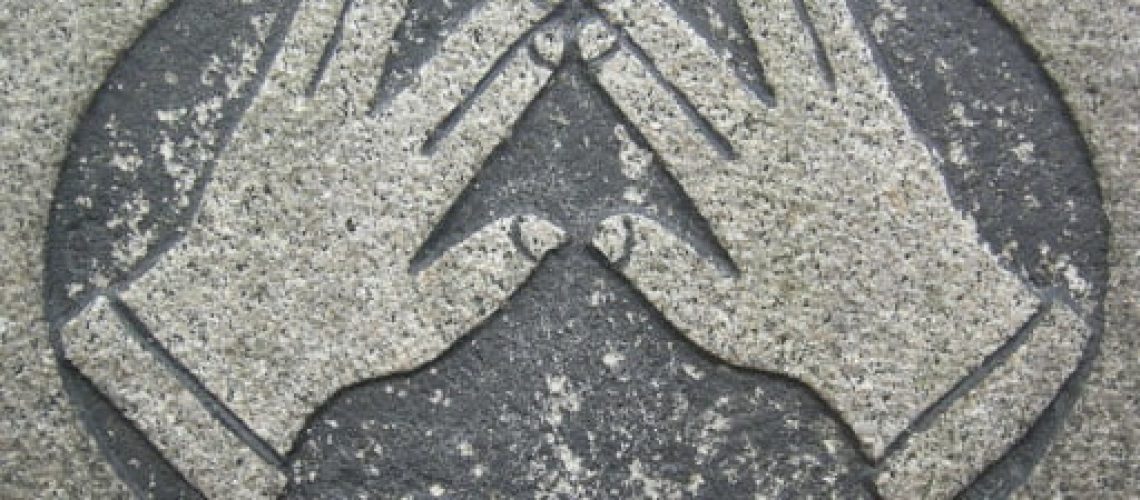Parashah Nasso 5782
What being an adult and a jew means?
Shabbat shalom and Mazal tov to Simon and his family. Simon, last week you asked me a very good question and I gave you a very silly answer. You asked, what does it really mean to be a Jewish adult? I know I can read from the Tora, but what else changes? And I said : You can kill someone now, and you won’t be punished, your parents will be. But after the bar mitzva, you’re responsible for your own actions. I could have probably given a better example. The same responsibility is there for positive actions. Until now, if you learned something, if you created something, if you helped somebody, if you made the world a better place – we would congratulate your teachers and your parents. Now, the responsibility is yours, and you deserve the congratulations for your own efforts and choices. But because of my silly answer to your good question, you got me thinking about justice and the judicial system, and I would like to look at a few other exemptions from strict justice and punishment that we find in the parasha.
The birkat Kohanim
Your paracha contains a very famous text, the birkat kohanim, the priestly blessing that is recited in our prayers, and on many other occasions.
The achkenazi custom outside of Israel is that because our happiness is not complete in exile, the priests, the cohanim, don’t recite the blessing every day. Only on the festivals, when we manage to forget the brokenness of our world, we invite the priests to say it. The sephardim, who are less lachrymose, just say it every day.
The text itself is very short, three lines, fifteen words. I’ll read the whole passage here, and then give an approximative translation:
כֹּה תְבָרֲכוּ אֶת בְּנֵי יִשְׂרָאֵל אָמוֹר לָהֶם:
יְבָרֶכְךָ ה’ וְיִשְׁמְרֶךָ:
יָאֵר ה’ פָּנָיו אֵלֶיךָ וִיחֻנֶּךָּ:
יִשָּׂא ה’ פָּנָיו אֵלֶיךָ וְיָשֵׂם לְךָ שָׁלוֹם:
וְשָׂמוּ אֶת שְׁמִי עַל בְּנֵי יִשְׂרָאֵל וַאֲנִי אֲבָרֲכֵם
“Voici comment vous bénirez les enfants d’Israël; vous leur direz:
“Que l’Éternel te bénisse et te protège!
Que l’Éternel fasse rayonner sa face sur toi et te soit bienveillant!
Que l’Éternel dirige son regard vers toi et t’accorde la paix!”
Ils imposeront ainsi mon nom sur les enfants d’Israël, et moi je les bénirai.”
I said this is an approximative translation, not only because true translation is impossible, but also for halakhic reasons. There is a halakha that this text has to be recited in Hebrew, even though most prayers and blessings may be said in any language.
Why? Because the introduction is “ko tevarkhu et bnei yisrael”, Voici comment vous bénirez les enfants d’Israël. Exactly like this, namely, in Hebrew. But more precisely, it’s not just that it has to be in Hebrew, but translating this text seems to be forbidden. In ancient times, just like today, not all the Jews understood Hebrew, and in order to make sure that everybody could understand the weekly paracha, the practice was that each verse was read twice, once in the original Hebrew and once in a translation to Aramaic. We find however in the michna a list of exceptional texts whose translation is forbidden, lest they be misunderstood. One of them is birkat kohanim.
The commentators say that the dangerous words, the words most likely to be misunderstood, is the last line: Que l’Éternel dirige son regard vers toi et t’accorde la paix . What does it mean, to direct his regard? It means, he finds you special. He cares about you. It’s similar to the line before it: Que l’Éternel fasse rayonner sa face sur toi , like a friend or a lover, God’s face lights up with joy in seeing us.
Maybe the problem in these verses is the anthropomorphism, the insistence on God’s body and face, that the rabbis wanted to avoid. But more than that, there’s a theological problem with God caring about us. The Talmud describes the angels accusing God and saying: if you are just and fair, how can you care about these people of Israel specifically? If you commanded human judges to treat everyone equally, and not direct their regard on anybody because they are rich or powerful, why do you then direct your regard on these people?
Justice and mercy
In the Merchant of Venice, Shakespeare’s wonderful and antisemitic play, Shylock the Jew is accused of following the contract that he wrote and demanding strict justice. Portia, dressed as a male lawyer, makes a curious argument: Since Antonio admits that the contract is valid, “Then must the Jew be merciful” “Il foit donc que le Juif soit miséricordieux.” Since Shylock the Jew deserves to be paid by law, he must show mercy. She continues with a long speech praising the quality of mercy, saying that one must follow in God’s example, whereby “mercy seasons justice”.
The intimation is that Jews don’t understand mercy and they need to learn it from the Christians, and indeed, Shylock is forced to convert to Christianity at the end of the scene. The problem with Portia’s theological argument isn’t that the Jewish God doesn’t combine mercy and justice. Our Talmud and our kabbalistic tradition are very clear about this combination. The problem is that it simplifies God as being merciful because He must be. Portia says that we must season justice with mercy because God does: we should be 50% justice and 50% mercy, like God. But Jewish prayer is more complex than that: we demand that our God be 100% justice and 100% mercy, and we don’t care about how this paradox is solved.
We want a God of intimacy, who cares about what we do but doesn’t only show that care through mechanical reward and punishment. I’m learning French these days, and I notice a difference between Hebrew and French – modern Hebrew only has three tenses – past, present and future – and French has about sixty. But one of the nuances that’s missing in Hebrew is the difference between the known future and the subjunctive, the unsure future. The phrase yisa adonai panav eleikha can mean God will direct his regard to you, but it’s more correct to translate, as we did, as a wish or a prayer: Que l’Éternel dirige son regard vers toi. We don’t know that God will do us any favours. But we hope so. The same way we want our community to care about us more than anyone else, the same way we hope that our family is unfair and unjust and prioritises our needs more than others, that’s what we demand of our God. And at the same time, we demand absolute justice. Maybe this is why we don’t translate birkat kohanim, not to make this paradox too explicit.
All theology is a way of talking about ourselves, about the best versions of ourselves that we consider to be in the divine image. The qualities of God we describe in our blessings are the qualities of the people who we can be. We want ourselves to be 100% of everything. We want to be fair and just, and be unfair and caring. We want our regard to be on everything, and on some people even more. We want what we deserve, and also what we don’t deserve. We want security and freedom. We want Jewish adults to be responsible for their actions, positive and negative, but we want them to retain their childhood defiance against simple systems. We don’t solve these paradoxes, but we live with them, doing the best we can in every situation. That, perhaps, is a better answer to your question.
Shabbat chalom!


